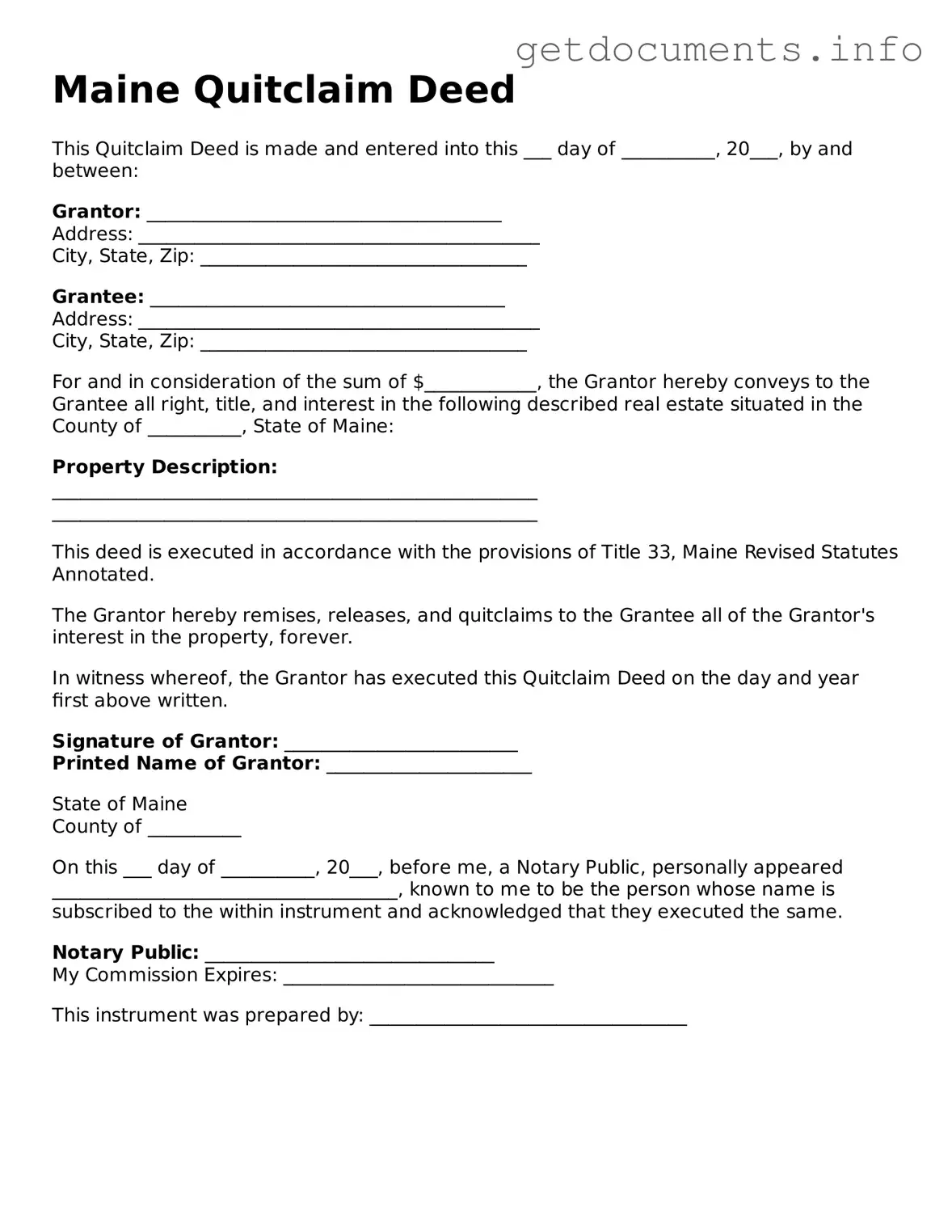Free Quitclaim Deed Template for Maine
A Quitclaim Deed is a legal document used in Maine to transfer ownership of real estate from one party to another without any warranties regarding the title. This form is often utilized in situations where the parties know each other well, such as family transfers or divorce settlements. For those looking to complete this process, filling out the Quitclaim Deed form is essential; click the button below to get started.
Access Quitclaim Deed Editor

Free Quitclaim Deed Template for Maine
Access Quitclaim Deed Editor
Got places to be? Complete the form fast
Fill out Quitclaim Deed online and avoid printing or scanning.
Access Quitclaim Deed Editor
or
⇩ PDF File
